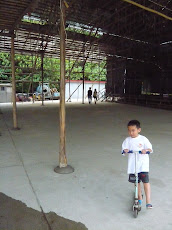
Time and What to Read
Chow Mo Wan (Tony Leung) in 2046 says: "People like me have too much time."
Chow Mo Wan is everywhere. It could be you, and it's definitely me, currently. Having too much time, to many people, is a kind of luxury. They would sacrifice money to get it; I would do the opposite. Not wanting to dig into the perplexing academic books, but still wishing to keep track to the academic domain, I choose to read some magazines - not the local tabloids (not to mention cable channel 13 is suffocating us with information we don't need to know).
Philosophy Now (http://www.philosophynow.org/) is an easy read and fun-to-read for people with a certain background and interest of philosophy and culture (both ancient and contemporary). Those thinkers (scholars worship them as 'great' thinkers) spent five to twenty years to write a book that needs at least years to decode. Then, one need to dig out the secondary resources on the debates on such books and their ideas. Possibly, it's going to make you age faster than you should, with a sense of helpless and bewilderment upon encountering difficult ideas. Yet the magazine provides people with a fast means to understand the basic framework of such ideas. I am not a fan of Wittgenstein, whose PhD thesis, I was told, was written in one paragraph. But I find the following anecdote very intersting:
One morning, when Wittgenstein appeared for breakfast I noticed he was not clean-shaven. (This was unusual as W was always so well presented.) "Ludwig," I asked, "are you growing a beard?" At this he looked angry and replied: "Not shaving isn't the same thing as growing a beard!" He paused for a moment then continued:"...though to grow a beard certainly requires one not to shave."
This issue features two articles that most interest me: Alan Kirby argues that postmodernism has been dead, and what we have been thinking as postmodern texts, or phenonmena, are what he calls 'pseudo-modernism', which requires a great deal of interaction from the audience or viewers. For example, Channel 4's Big Brother could not survive if no viewers phone in from the families, or the game shows would not have been produced if there's no participant contributing to the drama of the plotlessness of the programme.
There's another article (actually a film review), comparing two films about the 9-11 incident: United 93 and World Trade Centre. For people following my blog, it would not be necessary to stress how much I value the former than the latter. The reviewer, Thomas Wartenberg, points out how the structure of United 93 resembles a Greek tradegy. Interesting.
The English is plain and is written to make the readers understand, instead of arousing further confusion. Philosophy Now is published bi-monthly in England, but you can get a copy at Page One, rather regularly (HK$59.00).
It's time to think about ideas in relation to the culture we are situated in. There's no need to agree with the thinkers. Instead of being engulfed by our surroundings, I urge for a need to ponder on why and how (even though there's no possible escape from capitalism) we are eaten. A reflection is needed, and it needs time to take place.


No comments:
Post a Comment